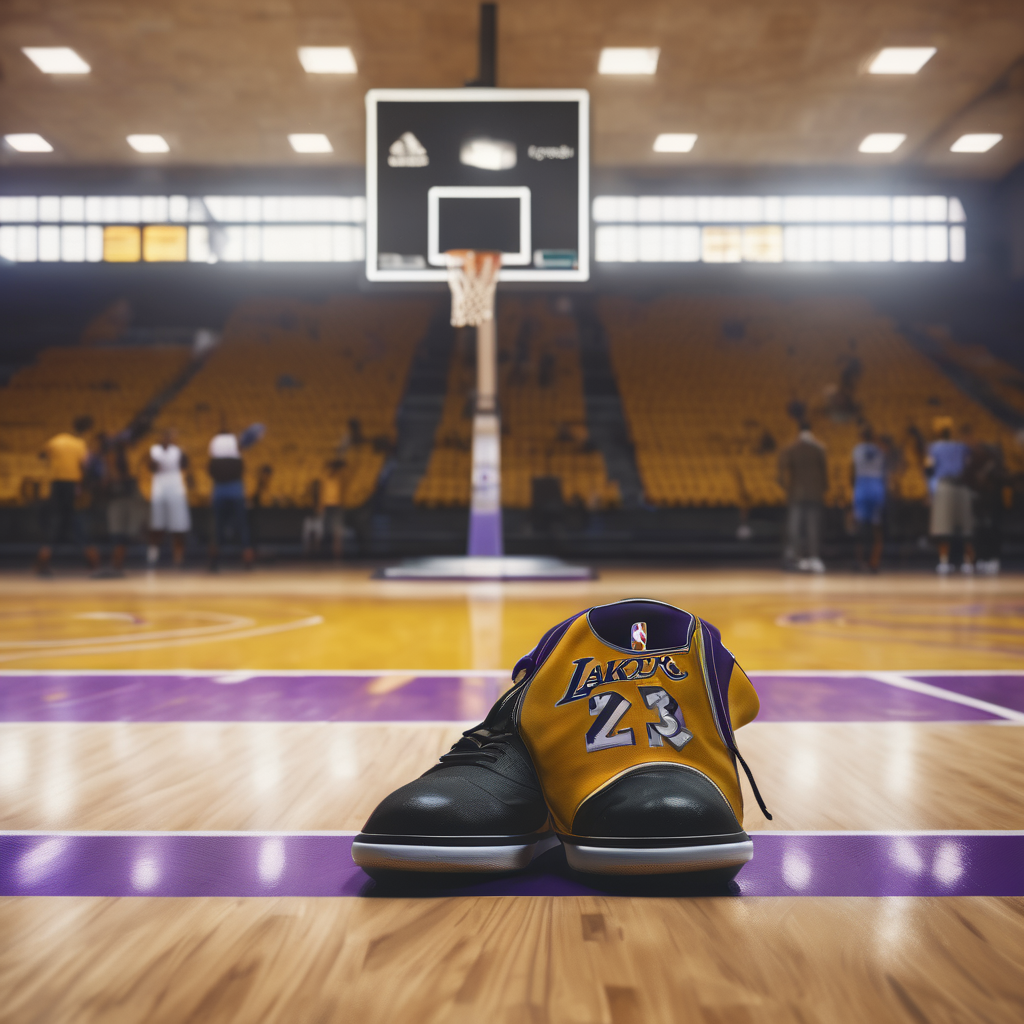In 1987, Kareem Abdul-Jabbar found himself at a pivotal moment in his illustrious NBA career. At 39 years old, the towering star had recently led the Los Angeles Lakers to the Western Conference finals, yet faced a reality shift as attention turned to a rising Magic Johnson. While Abdul-Jabbar had once been the focal point of the Lakers’ offense, the emergence of Johnson signified a passing of the torch that would shape the Lakers’ legacy in the late ’80s.
Fast forward to now, and LeBron James stands at a similar crossroads as he embarks on his 23rd NBA season. Just shy of his 41st birthday, James endured a later-than-expected season debut due to sciatica but stepped onto the court to an eagerly awaiting media swarm. In a game against the Utah Jazz, although he displayed a modest performance, his presence loomed large— overshadowing standout performances from younger teammates like Luka Doncic, who is now seen as the future face of the franchise.
James has continually defied the odds for aging athletes, becoming the first 40-year-old to earn All-NBA honors last season, suggesting his ability to still compete at a high level. However, as he navigates this latest chapter, he faces the question of how much he will relinquish control to Doncic, who is becoming a pivotal player for the team. With this transition, parallels can be drawn between James’s current career trajectory and that of Abdul-Jabbar when he adapted to share the spotlight with Magic.
Kareem’s successful adjustment in the late ’80s laid the foundation for the Lakers’ championship victories. His acceptance of a reduced role allowed the team to thrive, culminating in two titles before his retirement. A similar shift may be necessary for James if the Lakers are to contend seriously this season. His willingness to adapt and embrace a more supportive role could promote teamwork and, ultimately, lead to success.
Meanwhile, the dynamics of team structure have also evolved. The Lakers boast additional talent, including Austin Reaves, who has demonstrated remarkable skills, underscoring that James is not alone in carrying the organizational burden. The challenge for James is to understand that stepping back could not only preserve his health but potentially enhance the entire team’s ability to advance in the playoffs.
Critically, James is in the final year of his contract, which leaves his future in limbo. Once again, historical contexts resonate; teams led by basketball legends have faced similar crossroads. Michael Jordan and Kobe Bryant grappled with their own declining roles as they aged, often resisting the shift. However, those who embraced change—like Abdul-Jabbar—found renewed success late in their careers.
As the Lakers step into the new season, the essential question remains: Will LeBron James adopt the mindset to meld with Doncic and the evolving roster, or will his legacy be defined by a clinging to past glories? While championships are never guaranteed, choosing to harmonize with younger stars could provide the Lakers with the best opportunity for a fruitful playoff run. Ultimately, this could be a defining moment for James, with the chance to not only redefine his role but also to explore the beauty of collaboration in pursuit of victory.
